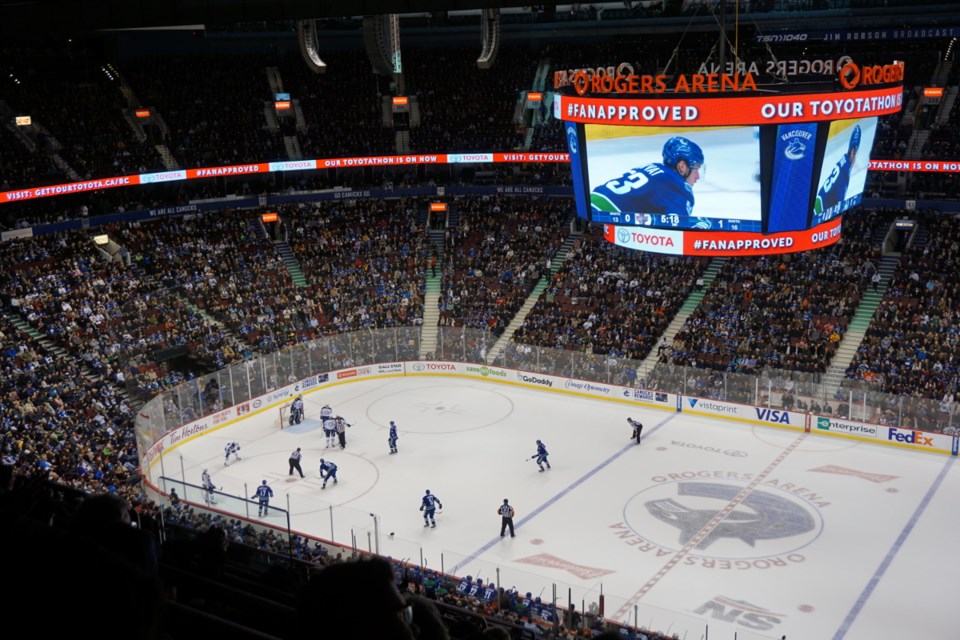The crowd was rocking during the Vancouver Canucks’ last game on Saturday, as fans competed with visiting Toronto Maple Leafs fans to drown each other out with chants and cheers. It was a fantastic atmosphere, particularly when you consider that Rogers Arena was only at half capacity.
The Canucks have been playing in front of a half-capacity crowd since a mid-December provincial health order. Since then, however, the Canucks have only played six home games, as multiple games were postponed, some due to positive COVID-19 cases and two others in hopes that capacity restrictions would soon be lifted.
Now those restrictions have been lifted and the Canucks will be back to 100% capacity by their next home game on Saturday against the Anaheim Ducks.
The announcement comes as part of a whole host of eased restrictions that come into effect Feb. 17. Indoor seated events can go back to full capacity, as long as everyone has their BC Vaccine Card and wears a mask.
Of course, Canucks fans haven’t always been great at following the mask rule, as any perusal of the crowd during games would illustrate.
"Today's news was made possible thanks to everyone's efforts and commitment in recent weeks and months as we all navigated the latest challenges of the pandemic," said Michael Doyle, the Canucks president of business operations in a statement. "The health and safety of our fans, employees, players, and community continues to be a top priority as we safely open our doors to full capacity again. We will continue to follow provincial health orders at our games and live events at Rogers Arena and Abbotsford Centre as we welcome fans back to full arenas."
The easing of restrictions is possible because of the wide adoption of COVID-19 vaccines. B.C. is one of the most vaccinated jurisdictions in the world, according to the Ministry of Health and Dr. Bonnie Henry, and 90.5% of B.C. residents who are 12 or older have received two doses of an approved COVID-19 vaccine, while 52.7% have received a third dose.
The NHL has eased its own COVID-19 protocol over the past two months. In December, the NHL announced that players and staff who test positive for COVID-19 would only need to isolate for five days instead of ten days and would then be able to return to their team after a negative test.
The biggest change came after the All-Star break. Instead of testing players and staff daily for COVID-19, the NHL switched to testing only those who exhibit symptoms. This change came after dozens of players, including several Canucks, were forced to quarantine after a positive test but were asymptomatic.
That so many players have remained asymptomatic illustrates the efficacy of vaccination — when the Canucks had a COVID-19 outbreak during the 2020-21 season, the players experienced a wide range of symptoms, some of them severe. According to an anonymous Canucks player, some teammates even received IV treatments for severe dehydration.
“Fatigue, dehydration, the symptoms are intense,” said one agent of a Canucks player. “It's knocked a lot of guys out. Some can't even get out of bed.”
“I’d go up a flight of stairs,” said Brandon Sutter to The Athletic at the time. “I’d get up there and you can’t get a deep breath…You’d feel, like, light-headed and your chest would be so full of air, but it’s not.”
“Now having got it, you really understand why it’s become such an issue,” added Sutter, “because it just wipes you out and grabs a hold of you. It’s a tricky, scary thing.”
Since the outbreak, Brandon Sutter has experienced what is called long COVID and isn’t expected to return to the Canucks lineup this season. His future in the NHL is unknown.





